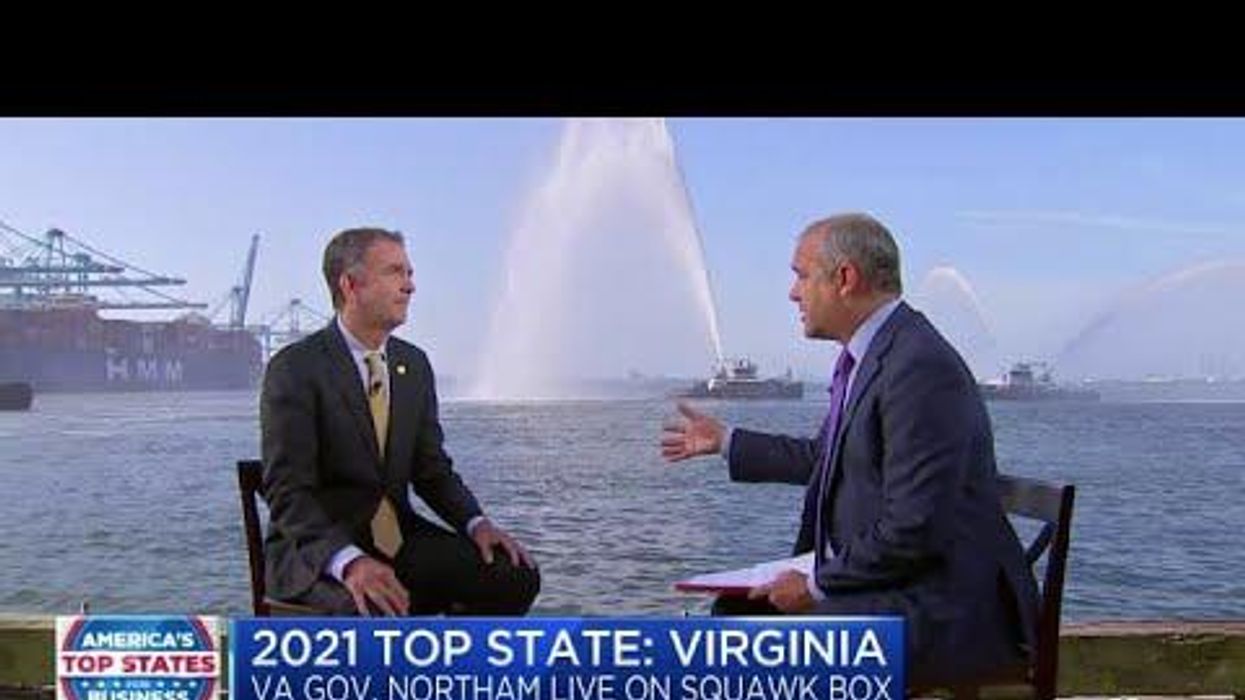Nevins is co-publisher of The Fulcrum and co-founder and board chairman of the Bridge Alliance Education Fund.
On July 13, CNBC announced its annual "America's Top States for Business" awards given annually since 2007.
The competition among states to entice businesses is more competitive than ever as more and more states offer tax incentives and other perks to encourage corporate relocation.
A new category, "Life, Health and Inclusion," replaced "Quality of Life" as a metric this year, to respond to corporate America's desire for inclusiveness. This is a significant recognition that when deciding on new business locations, consideration of diversity and equity in a state is an important factor in determining which state is most attractive.
Not surprisingly, this new metric has inserted politics into a non-political award.
CNBC intentionally wants the Top States for Business award to be devoid of political connotations, but one can't help but wonder, given the polarized society we live in, whether including diversity and equity in the weighting adjustments for 2021 will not politicize this award. CNBC clearly states that the award uses empirical data based on changes in American society and culture that impact corporations' perceptions of what is important. But the attention paid to a politicized topic is sure to be seen by some as political intrusion or catering to the populist whim of our time.
One example is the increased weighting of infrastructure. CNBC has determined infrastructure is more important than ever in determining a state's competitiveness to attract corporations, yet it is one of the most hotly debated legislative matters before Congress today.
The new "Life, Health and Inclusion" category is getting the most reaction. As this year's winner, Virginia earned points for its voting rights and anti-discrimination laws, two areas that have seen significant change since Democrats took complete control of state government in 2019.
And of course, while the award is supposed to be devoid of politics, Gov. Ralph Northam was quick to take credit for Virginia's No. 1 ranking.
"When you do the right thing for people it's not only right for them but it's good for business, and we've proven it," Northam told CNBC on Tuesday. "Yes, Virginia went through some tough times and Virginians stuck with me. I committed to dealing with equity, to addressing numerous inequities we have in Virginia," Northam said.
Northam went on to say, "Virginia is promoting making it easier to vote while other states are not." Given that voting rights is one of the most contentious political issues today, the insertion of politics into a non-political award is not surprising given the fact that two of Virginia's top competitors for business are Texas and Georgia, which have been accused by many of increasing voter restrictions.
Northam has vowed to use the remainder of his term to work toward equity in the state.
"There are a number of inequities in our society, to include access to health care, access to education, access to the business environment, access to the voting booth," Northam told CNBC in 2019. "So, we are really focusing on those inequities."
Additionally, this year Virginia has enacted legislation requiring all agencies to develop plans for diversity, equity and inclusion in their ranks — again creating a differentiator when up against states like Texas and Georgia.
While states across America are reacting in different ways to issues of diversity, equity and inclusion (DEI), it is clear that 2020 and 2021 have sparked a wave of DEI initiatives throughout corporate America at an unprecedented rate in reaction to their heightened concern about systemic racial injustice. Whether this shift in emphasis will ultimately impact the political process at the state and federal level remains to be seen. In April, corporate America inserted itself in the voting rights debate as Amazon, BlackRock, Good and hundreds of other companies and executives signed on to a statement opposing "any discriminatory legislation" that would make it more difficult for people to vote. Whether this is a one-time statement or a long-term dedication to voting rights issues remains to be seen.
CNBC makes available the categories and weightings for each metric, offering some transparency of the process. A review will perhaps offer further insights into the inevitable intersection of economics and politics.




















